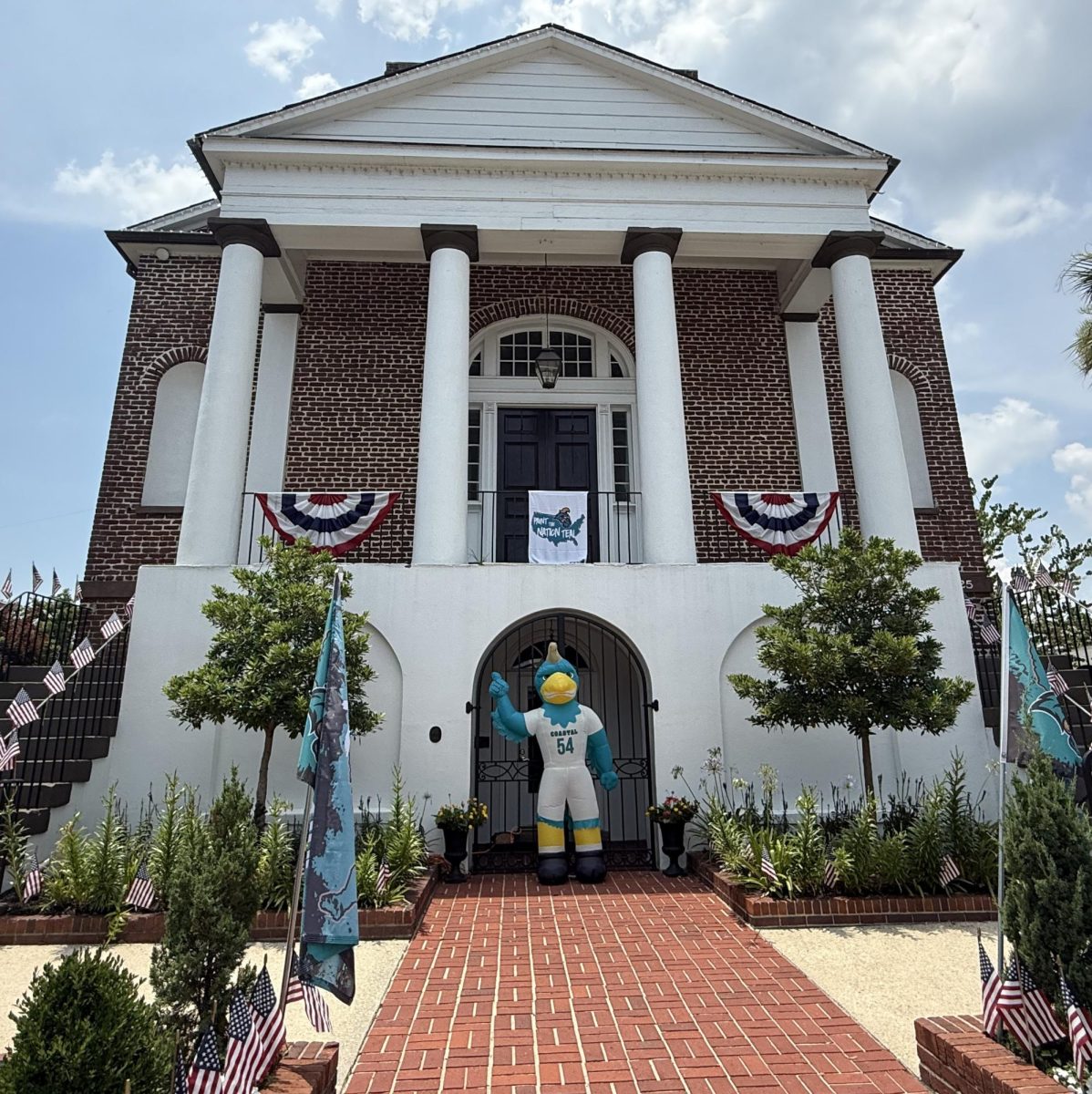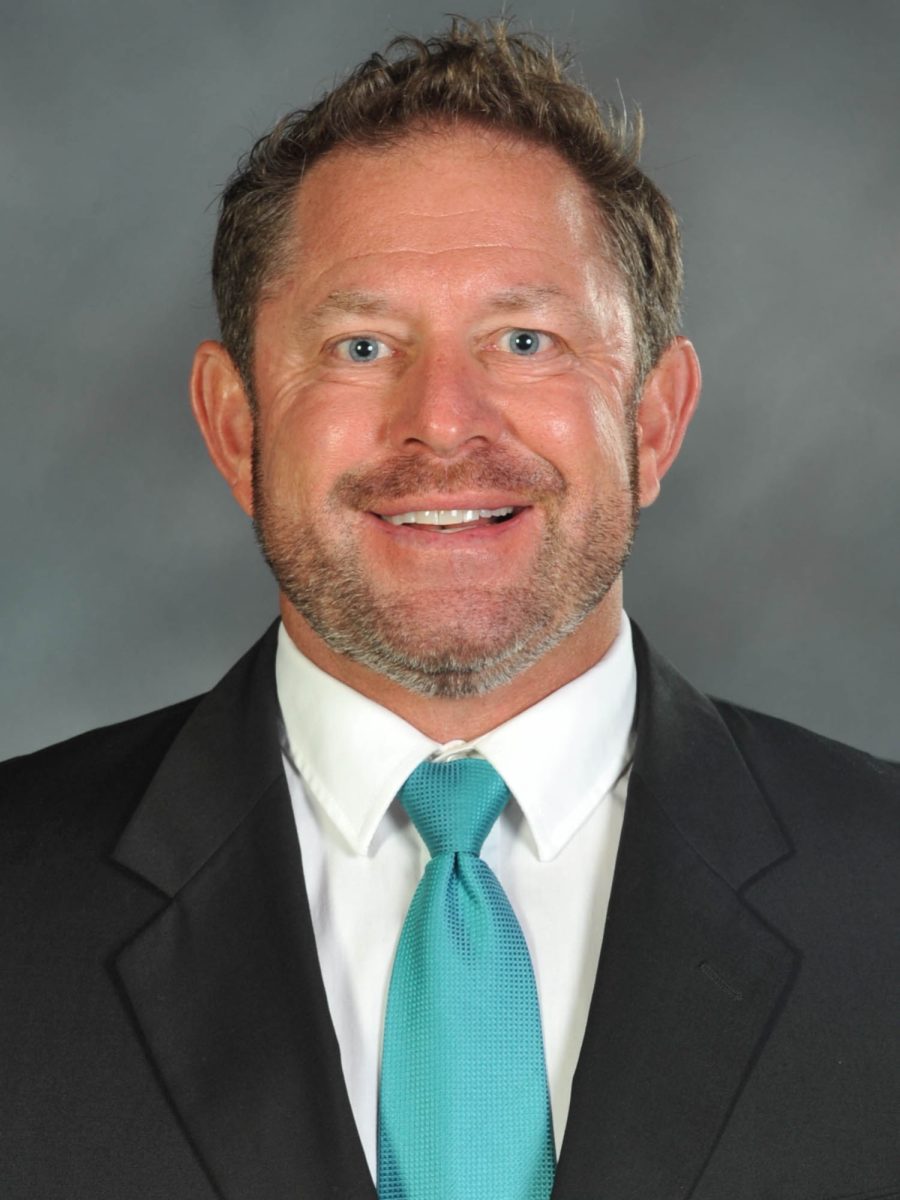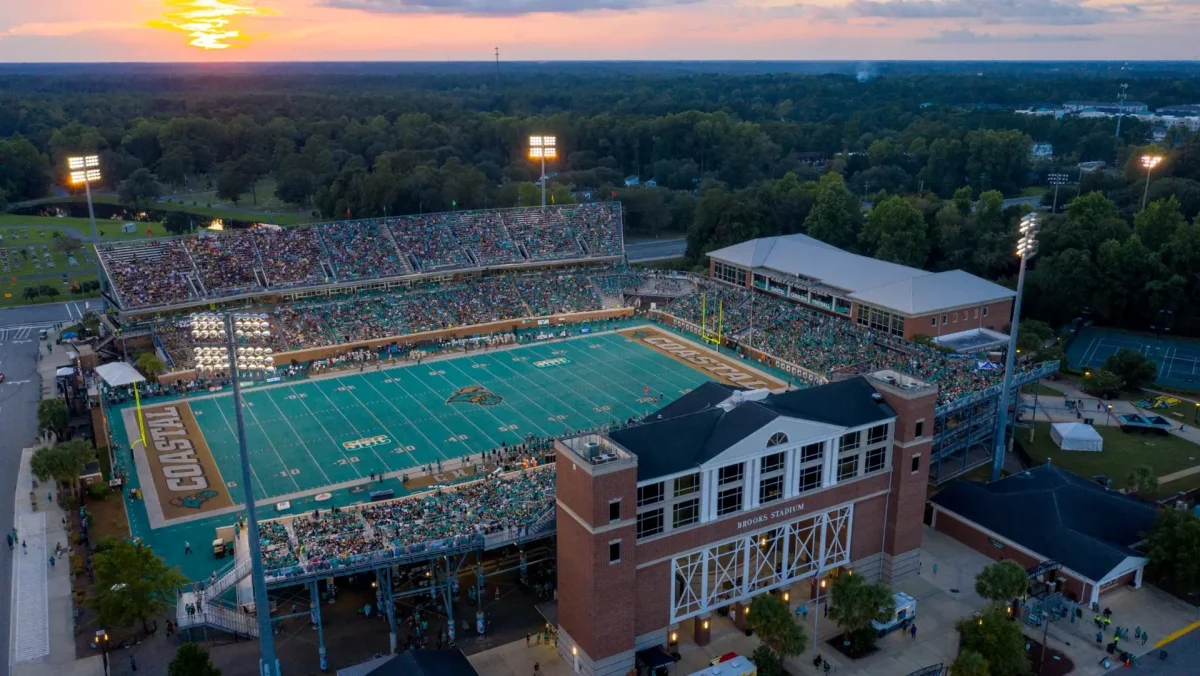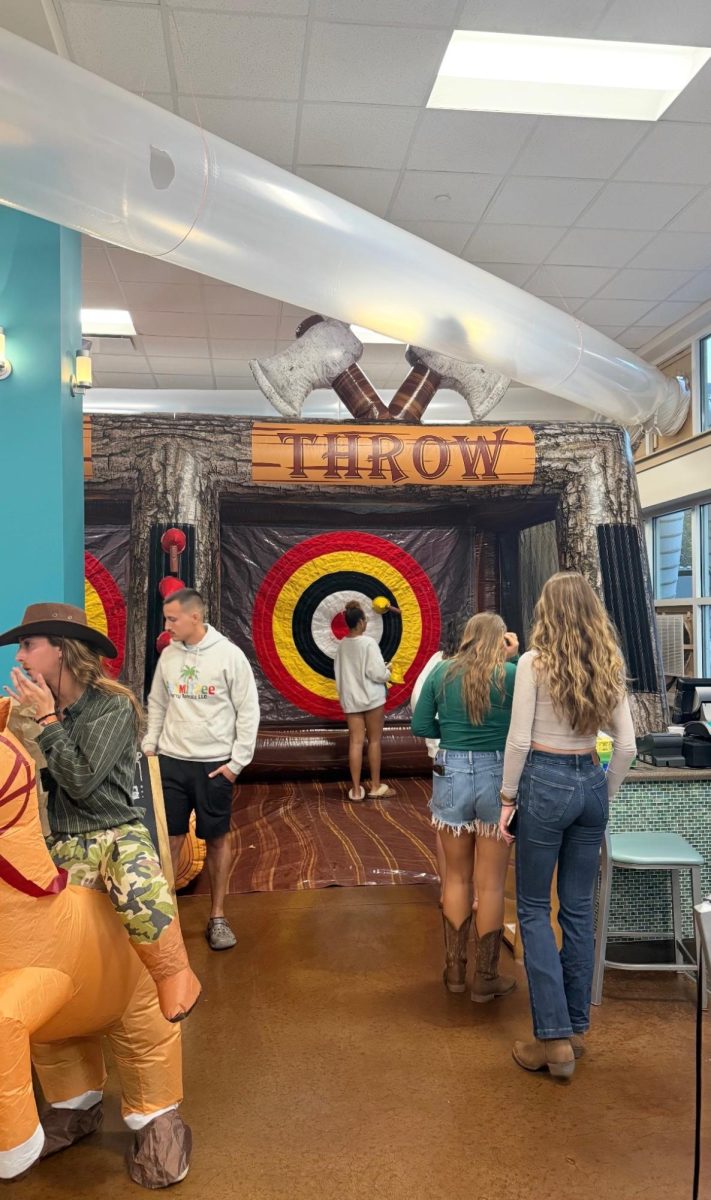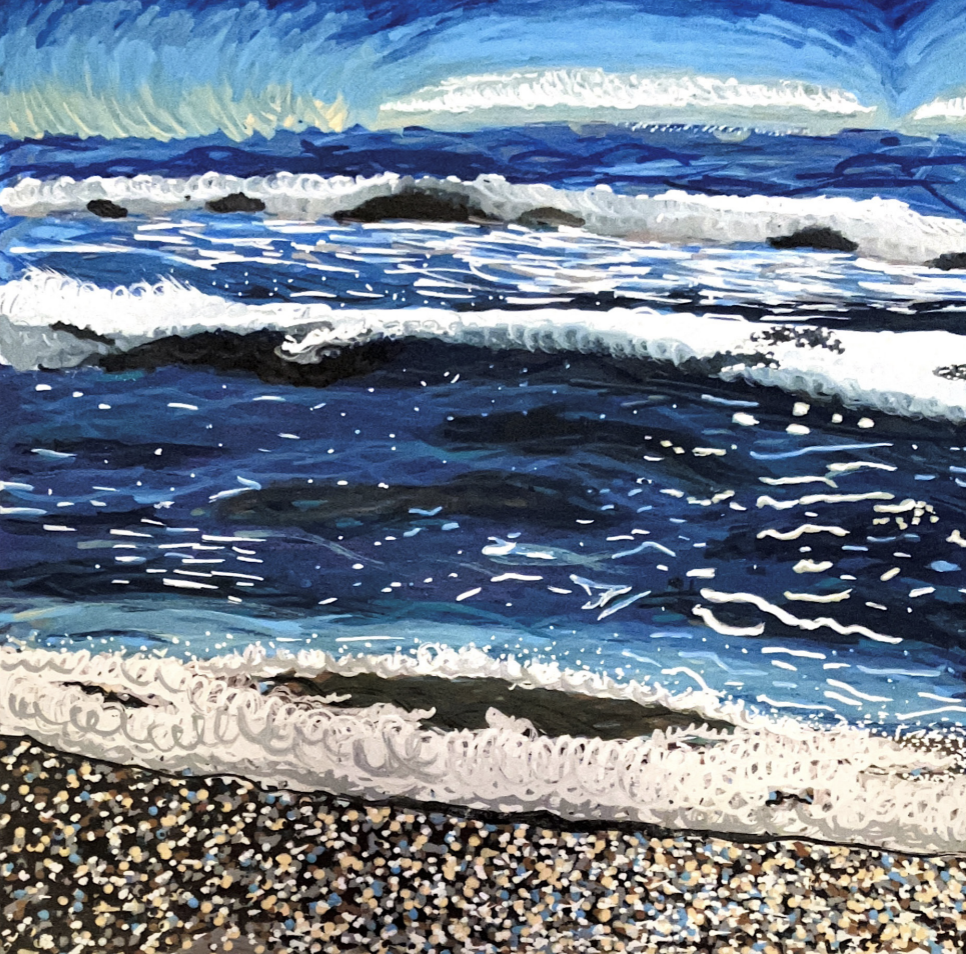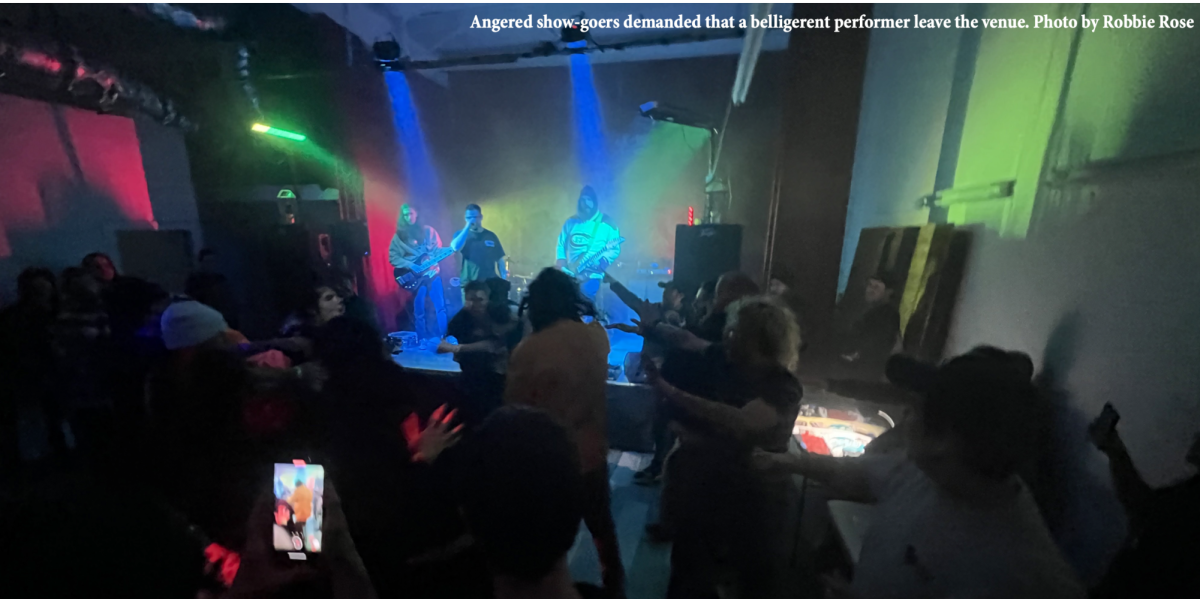While wandering down Seaboard Street in Myrtle Beach, known for its tattoo shops and strip clubs, the thrumming sounds of metal bands at Arcadia studios can be heard.
The ramshackle venue in an unassuming industrial unit hosted five hardcore bands Sunday, Nov. 26. Hardcore is a genre of fast, aggressive metal, where show-goers are encouraged to mosh in the center of the floor. Moshing styles range from a simple two-step to crowd killing, characterized by intensely flailing arms and high, spinning kicks.
An essential part of moshing is running into other crowd-goers, but there’s a fine line between good fun and intentionally hurting others.
At this event, Charleston-based show photographer Kayla Boshard was kicked in the face by a belligerent performer.
“He lifted his legs so hard and kicked me across the face, I felt his Vans in my mouth,” Boshard said, lower lip still bleeding. “I kick boxed for seven years, and if it wasn’t for that experience of being hit in my face, I would have passed out.”
Boshard, 33, has been going to hardcore shows since she was 14 years old.
“An entire mattress has been thrown at me” she said. “I’ve been to bigger, heavier bands, and have never been hit like that today.”
She emphasized that this behavior is not acceptable, even in this scene.
“It gives hardcore a bad name. I want people to feel safe to come here even though there’s moshing and crowd killing” she said. “Most people aren’t going to intentionally inflict pain.”
Violence at shows was more common in the past.
“Macho shit is not gonna fly no more in hardcore. And that was the way in the ‘90s but it’s not like that anymore” Boshard said. “I wanted to intimidate people in the pit, because that was the culture. It really used to be like that, and it was predominately run by white males that have anger issues.”
For those who play by the unspoken rules, Boshard finds intense moshing is about feeling an emotional release.
She said the scene is also a space where those who find themselves on the fringes of society can connect. As the only person of color in her family, Boshard found her home with hardcore, metal and punk kids.
“All of us were like, fucked up outcasts.”
Lately, the scene has become less and less fringe due to changing attitudes about alternative styles.
“The shit that I used to wear and get picked on is like, what’s cool now, and half of those kids aren’t really [alternative]. They’re just dressing alt because it’s a trend right now,” she said.
Despite past negative experiences, Boshard noted the growing popularity of alternative fashion is an overall good thing because it gets more people into the hardcore genre and ultimately brings bands more success.
“We’re trying to be a safe space for queer people, people of color, and that’s why you don’t [kick people in the face],” she said.


